The Opt-Out Economy: What Happens When 46% of Gen Z Women Stop Shopping
Our new research with The Guardian reveals Americans are levering the last vote they have left - their wallets
This morning, I overheard a conversation becoming New York's newest soundtrack: two people debating which mega-retailers they're willing to live without, who's worse, and why. Their discussion wasn't heated – it was exhausted. "I just wanted to buy paper towels," one sighed, “and not feed the beast.”
It's a scene playing out everywhere – consumers wrestling with the moral calculus of daily habits and purchases, taking the joy out of shopping.
Our new research with The Guardian puts numbers to this growing unease: 40% of Americans are actively changing their spending patterns, deliberately choosing to shop differently even when it complicates their lives.
1. Overnight Loyalty Losses
What's striking isn't just that people are changing where they shop – it's the speed and decisiveness with which longtime loyalties are dissolving. Shopping, once a source of joy and personal expression, is increasingly fraught with guilt, uncertainty, and conflict.
When 32% of Gen Z say "I don't shop at my favorite store anymore because of their politics," we're not talking about casual brand-switching – we're witnessing people abruptly abandoning places they genuinely loved, sometimes for years. This creates a kind of #consumergrief where both shoppers and retailers feel the sudden break in what seemed like lasting relationships.
2. Entering The Opt-Out Economy
Nearly half (46%) of Gen Z women say they have no interest in supporting the economy this year, nearly 20 points higher than their male counterparts (28%).
And 43% of Gen Z women say I'm finding ways to opt out of the economy (vs. 37% of Gen Z men and 36% of all Americans.
This isn't just selective shopping - it's calculated economic leverage. When 55% of Gen Z women and 50% of Gen Z men report completely shifting their spending patterns to align with their morals, they're exercising the most powerful tool they have in a capitalist system, but at a personal cost.
3. The Last Lever to Pull
Young consumers have become acutely aware that in our economic system, where consumer spending behavior drives nearly 70% of GDP - it is their most potent form of influence. When traditional political and social channels feel ineffective, they're squeezing where it hurts most: the bottom line.
This isn't impulsive boycotting; it's strategic economic resistance. They understand corporations respond to revenue threats more reliably than social media outrage or petition signatures. But the constant vigilance required is creating a new kind of #consumerburnout.
We're seeing this resistance crystallize in the planned "Feb 28 Economic Blackout," a nationwide boycott gaining momentum across social media platforms and with celebrities. The movement calls for Americans to abstain from all purchases for 24 hours to protest skyrocketing prices and corporate greed. While single-day boycotts often generate attention more than sustained impact, they reflect the growing willingness of consumers to coordinate their economic power.
And young people are not alone. Two years ago, with Seth Matlins and Forbes, we found that 76% of all Americans "believe that today's form of capitalism needs to evolve" - this agreement cut across generational, racial, and political ideologies. Meanwhile, 70% of all Americans at that time viewed capitalism as "a system that has gone awry that had good intentions, but bad actors."
4. Values Whiplash: How Political Pivoting Costs Companies
We've seen this movie before. Consumer activism surged during the first Trump administration with the Grab Your Wallet campaign. Companies responded with bold statements and commitments. Now, as election cycles turn, we're watching some of these same companies retreat – and paying the price.
Case in point: After Target announced its retreat from DEI commitments on January 24, foot traffic dropped for the first time this year – down 4%, then 8.6%, then 3.9% in subsequent weeks. Meanwhile, Costco, standing firm despite pressure from 19 Republican attorneys general, saw foot traffic increase by around 5% in the same period.
"What we're witnessing isn't just consumer choice – it's consumer revolution," notes our CEO John Gerzema. "Americans are rediscovering that in a capitalist system, their most powerful vote might be the one they cast with their wallet."
What's particularly exhausting for consumers is inconsistency. People can align with or against a brand's values, but when those values shift with political winds, the mental calculus starts all over again. This constant recalibration creates decision fatigue that dampens the joy of shopping entirely.
5. The Future: Hyper Personalized Value Meters
Imagine a near future where every purchase decision comes with instant moral clarity. Your Apple Watch scans a product and, like those nutrition labels we've grown accustomed to, instantly displays a color-coded score reflecting how well that company aligns with your personal values. Green for go, yellow for caution, red for reconsider.
This isn't science fiction – it's the logical next step in conscious consumption. Because when you're about to drop $20 on eggs, wouldn't it be a relief to make these decisions once rather than recalculating with every shopping trip
What This Means for Business
For brands, this isn't just another consumer trend to weather – it's a fundamental restructuring of the social contract between companies and customers. The equation of convenience + price = loyalty is crumbling under the weight of consumer consciousness. This shift is part of what we've identified as "The Dawn of the Daring Twenties" – where Americans are increasingly taking matters into their own hands rather than waiting for institutions to change.
Companies swinging back and forth on values commitments aren't just risking current sales – they're eroding long-term trust. When Target faced boycotts from multiple directions, it revealed something crucial: the old playbook of trying to please everyone by shifting positions is more dangerous than taking a clear stand.
In an era where every purchase is a values statement, predictability matters more than popularity. Consumers might disagree with your values, but they need to know what those values are. The companies winning in this new landscape aren't the ones making everyone happy – they're the ones making their positions clear and standing by them, giving consumers the clarity they crave.
For my daughter's generation, they won't just be buying products; they'll be buying futures. And they'll have the tools to know exactly what future they're investing in.
Because here's the truth: Consumers don't want to check every company's political stance before buying toilet paper. They want to shop without that nagging feeling they're compromising their values. They want to reclaim the simple joy of purchasing without moral conflict. They want shopping to feel good again and expect brands to deliver on this promise.
Big shout out to John Gerzema and Jack Cooney, who led this research in partnership with The Guardian.
3 Links
Uber, Lyft Risk Losing Customers as Fares Jump 7.2% (Bloomberg)
93% of Canadians feel it’s important to buy local in wake of U.S. tariffs threat (Toronto Sun)
This is How We Fall Out of Love with the World (Culture Study: Anne Helen Petersen)
Thanks for reading The Next Big Think!! Subscribe for free to receive new posts and support my work.
Subscribed
Curiosity is contagious; if you like this newsletter, please share it!!
Penned by Libby Rodney and Abbey Lunney, founders of the Thought Leadership Group at The Harris Poll. To learn more about the Thought Leadership Practice, just contact one of us or find out more here.
Thanks for reading The Next Big Think! Subscribe for free to receive new posts and support my work.







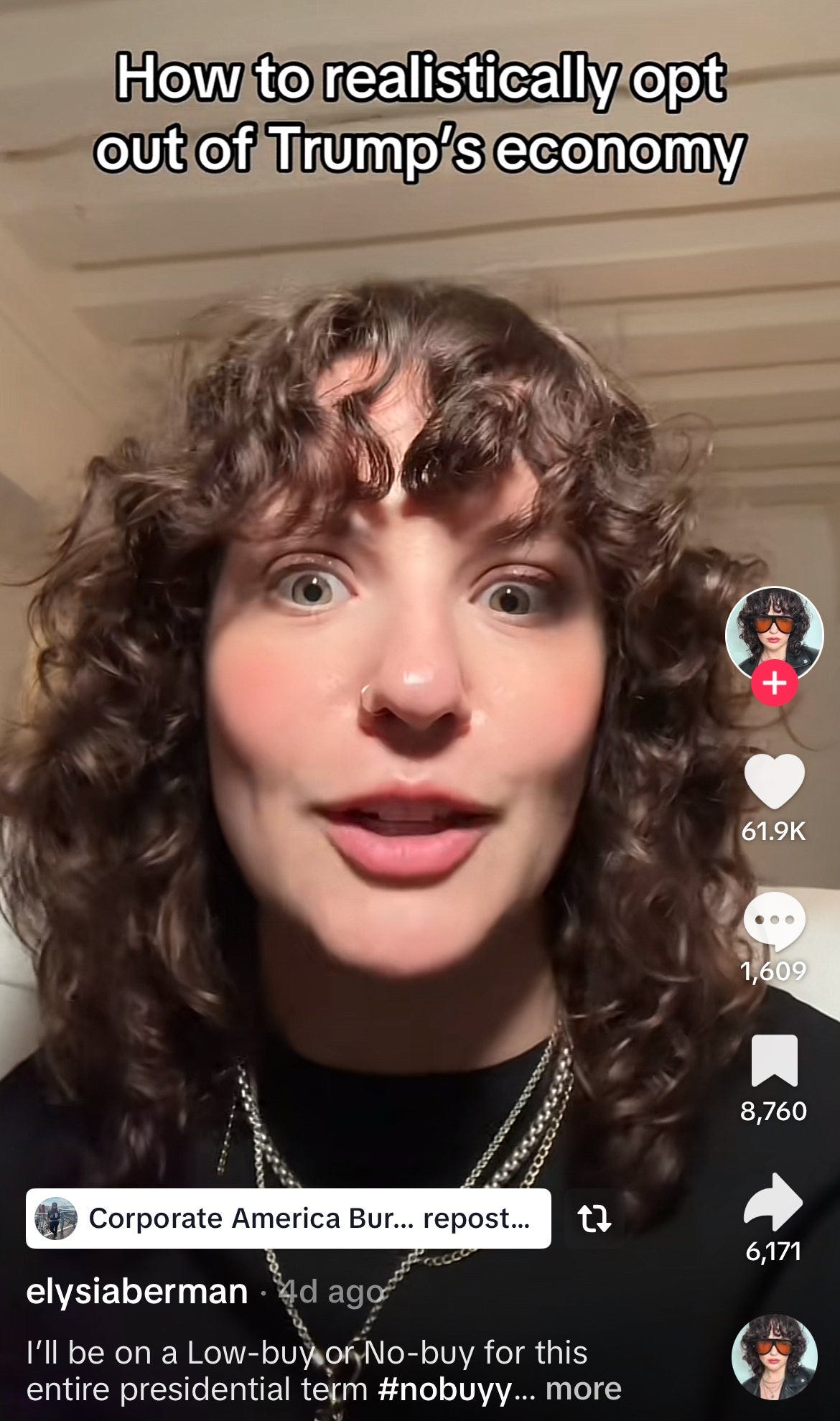


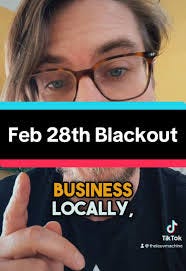
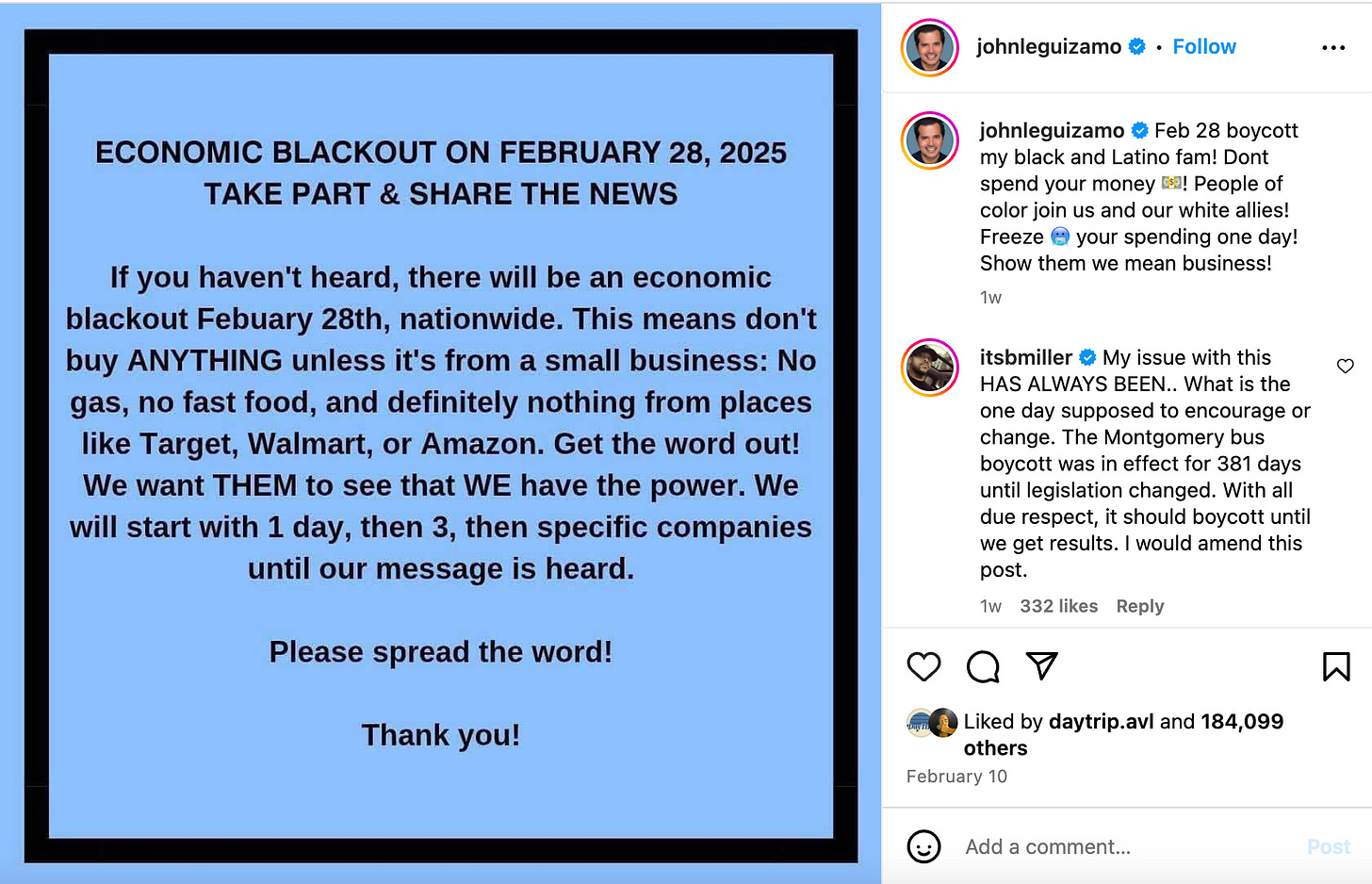

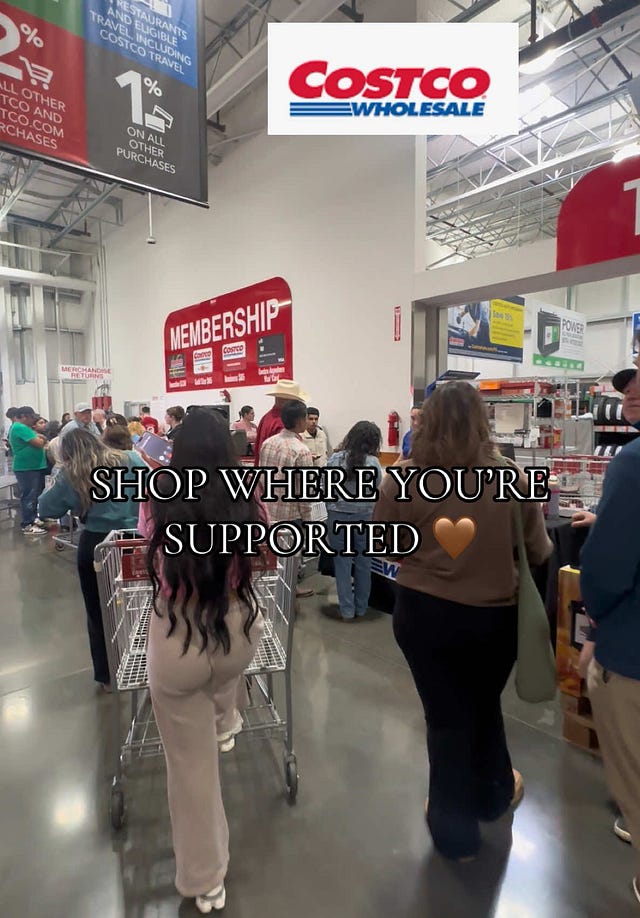

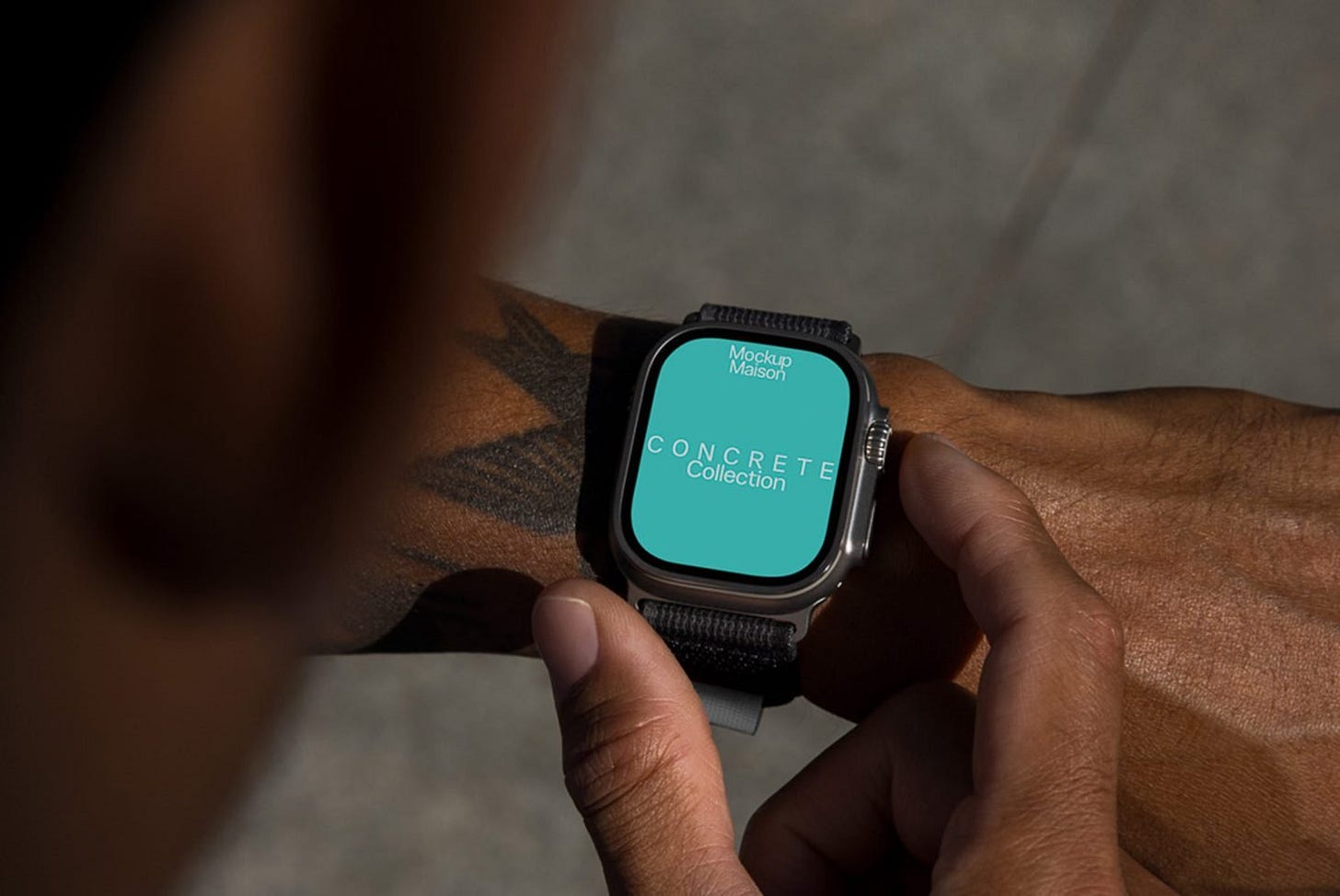

Yes! I’ve been saying this.
Want an impactful protest that doesn’t require a lot of risk for participants?
Women stop shopping for beauty products and clothing and jewelry.
Sooooo much money is made off of us being insecure about the way we look cause they made us feel insecure about the way we look.
Just stop.
I do however disagree with the statement that our biggest power in a capitalist system is in our money.
It’s not, it’s in our labor.
Not just Gen Z , Gen X too. There are stores I have boycotted for years now and that list growing by the minute. I am also boycotting red states. I truly believe this is our best leverage. Glad so many others feel the same way.